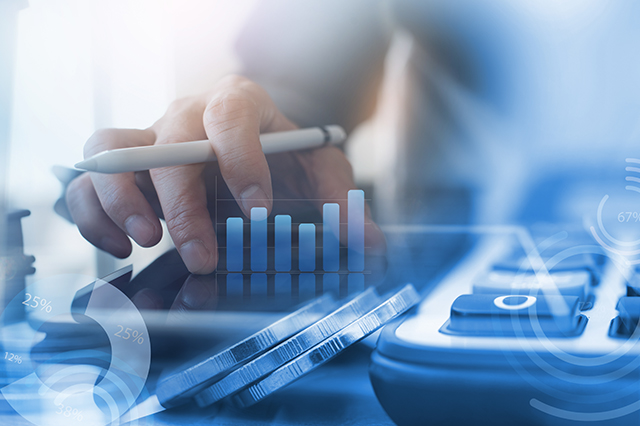Warren Buffett has rightly put – Accounting is the language of business.
Businesses cannot afford financial illiteracy and accounting is the measure. Accounting helps organizations to analyze financial & non-financial information and keep investors, regulators, and management updated.
While technological advancement is disrupting every sector, the world of accounting is dramatically changing too. And now digitalization is the topmost priority for many accounting agencies and eventually the businesses.
But how and when did it all start? Let’s turn the clock back and delve deeper into the technological evolution of accounting.
Evolution Of Accountancy With Technology
According to the experts, the early signs of accounting can be traced back to the Mesopotamian Civilization where people used primitive calculative methods to compute the growth of crops and animals. However, Abacus is the first device invented by man for calculations.
And then came the calculators which improved the speed and accuracy of financial management operations. But the paper entry was still dominant.
This pattern changed with the introduction of computers at the end of the 20th-century. The introduction of a spreadsheet program such as MS Excel made the tasks less tedious and time-effective. It accelerated the basic accounting tasks of auditing and tax preparations. Such a scenario encouraged digitalization eliminating the concept of paper entry.
The 19th century disrupted the accounting landscape with the introduction of the internet and intranet. Importing and exporting data back and forth from multiple systems became relatively easier reducing the traveling costs of the executives.
Accounting Meets Modern IT
As per Market Reports World, the global business accounting software market size to grow USD 1.64 bn by 2024.
The next-gen tools accelerate accounting tasks and encourage the accountants to track financial transactions digitally saving time & costs. These modern systems optimize financial assessments and accelerate the preparation of statements & reports that took months previously.
Here is a list of technologies that are impacting the accounting industry.
Cloud Computing
According to a study, businesses that embrace cloud-based accounting experience more than 14% year-over-year growth in revenue.
While the bookkeeping is tedious and generating revenue reports are exhaustive, cloud computing is the saviour. This technology enhances expense tracking, viewing real-time finance data, filing the tax returns, and other accounting operations. It not only saves time and effort but also offers better control of all financial processes.
Data Analytics
Worldwide revenues for Big Data and Business Analytics (BDA) solutions will reach $260 billion in 2022.
Big data is a key player in the accounting industry. It helps the experts to identify the valuable data and perform secure & vigorous data analysis with expanded assessment methods for actionable insights. It further encourages businesses to take necessary controls, anticipate risks and take actions before they occur.
Data Security
As the accounting software processes, volumes of financial data every day, the data security risks to the businesses is huge. The severity of such a risk has intensified with the introduction of cloud computing. Therefore, the businesses are adopting appropriate security measures and investing in staff training practices to offer highly secured accounting services to the businesses.
Automation
An ACCA Study shows that over 50% of C-level accounting executives expect the development of automated accounting systems.
Automation has transformed not only accounting but also all the other industries across the globe. RPA Bots can solve the problems of data inaccuracy of the monotonous data entry operations, risks of frauds and compromised security. This helps accountants to explore consulting aspect of business information analysis while offering top-notch service that business value.
Other Technologies
More than 60% of business leaders surveyed by Harvard Business Review Analytic Services said that utilizing machine learning may directly impact business success.
The future demands software that can “watch, learn & prioritize” and needs close-to-zero human intervention to perform complex accounting functions. Artificial intelligence (AI) and machine learning (ML) puts forth this opportunity to the accountants where the accounting software systems can imitate people and take decisions on their own.
Numerous other technology advancements are paving their way into this industry. From the adoption of the abacus to software programs like MS Excel and now the introduction of sophisticated technologies like Artificial Intelligence, IoT, Blockchain among others, accountants must be prepared for the technological change.
One way to uphold the financial prosperity in the businesses’ establishments is to adopt a comprehensive accounting software tool such as Financial Accounting made Comprehensive and Easy. This tool helps in managing accounting and GST returns filling needs with features like the interactive customizable dashboard, automatic journal entry among others. For more information, contact us at support@cygnet-face.com


